Meeting former prime Minister Abe.
Because Prime Minister Abe just stepped down I thought it would be a good time to share an Abe memory: when I met him!
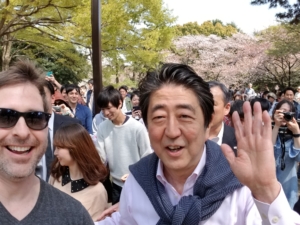
Because Prime Minister Abe just stepped down I thought it would be a good time to share an Abe memory: when I met him!


ある夫婦の離婚と、その間で揺れる子供たちを描いた傑作『イカとクジラ』から本日はご紹介します。監督のノア・バームバックは最新作『マリッジストーリー』でも高い評価を受けました。同様に離婚を描いている作品ですが、こちらは自身の離婚体験をもとにしているのに対し、『イカとクジラ』は少年期に経験した両親の離婚をもとに描かれているそうです。思春期の兄弟の葛藤が、シニカルなユーモアを交えながら語られ、笑えるのにとっても切ない、素晴らしい作品になっております。
台詞は、父親派である長男が、仕事の上手くいっていない父を見捨てて家族を壊したと、母親を責めるシーンより。
Is it because Dad isn’t as successful as he used to be?
(父さんが前ほど成功してないから?)
successful
成功している
successful=形容詞/success=名詞/succeed=動詞
例:He is quite successful in business.
(彼はビジネスでかなり成功している)
例:The event was a huge success.
(そのイベントは大成功をおさめた)
例:Why do some people succeed and others don’t?
(どうして成功する人としない人がいるんだろう)
used to~
以前は~だった(今は~ではない)
used toの後に動詞の原形で、過去の習慣や状態を表します。
例:I used to go to gym every week.
(以前は毎週ジムに通っていました)
例:She used to be very talkative.
(彼女昔はすごくお喋りだった)
※似た表現で「be used to~」というのがありますが、こちらは「~に慣れている」という表現です。またtoの後は動詞の原形ではなく、名詞(もしくは動名詞)がきます。
例:I am used to getting up early.
(早起きには慣れている)
Ayami
新宿校


Up close photography
What do you think these things are in the Photos?
1

2

3

4

5

6

7
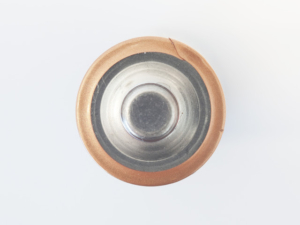
Thanks to Bored Panda and Blogger for the Photos!
No not that picture. This one!
 Nice one!
Nice one!
We got a chance to go to Nakamoto Ramen today! Celebration!
It was pretty good, My head was sweating!
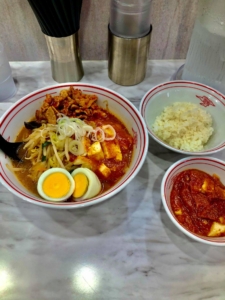

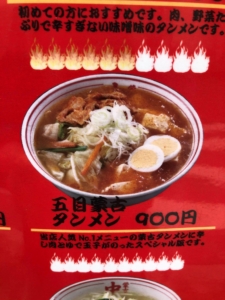
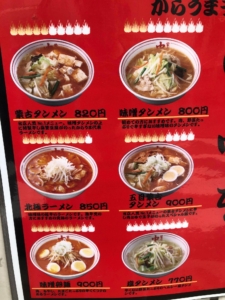
A collection of Schwarzenegger Nissin ramen commercials. Funny stuff! Have a great weekend!
This scene from Tampopo is amazing. The English translations are a little different but pretty good.
Do you move the pork to the side for later? Do you tap the pork?
One fine day…
an old man and I
went out for a bite.
He’d studied ramen for 40 years
and said he’d initiate me
into the art.
– Let’s stop.
– Why?
Your stupid book’s
making me hungry too.
LAI LAI RAMEN SHOP


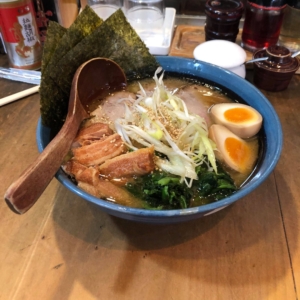
https://goo.gl/maps/dWJwho4xmwCGdto29
Nik
新橋校

1.I think soup is more important than noodles.
2. I haven’t gone yet but I really want to go to 蒙古タンメン中本 Mōkotanmen Nakamoto

https://www.moukotanmen-nakamoto.com/
Miki
新橋校

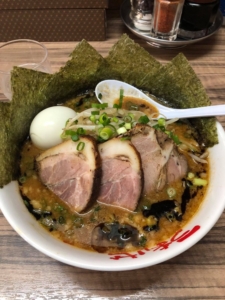
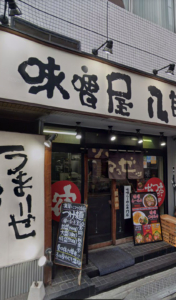
Mark
新宿校




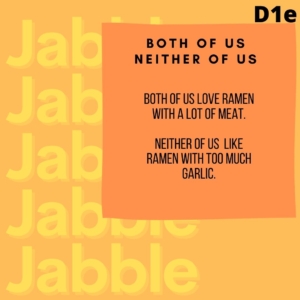
both of us / neither of us :[二人とも]とゆう意味 肯定文であれば Both of us like spring and summer. / 二人とも春と夏が好き。 こちらが否定文の場合 Neither of us like summer or winter. /二人とも夏も冬も好きじゃない。 とNeither も使います。 例(肯定文) Both of us like spicy ramen. / 二人とも辛いラーメンが好きです。 (否定文) Neither of us like milk ramen./二人ともミルクラーメンが好きではない。
